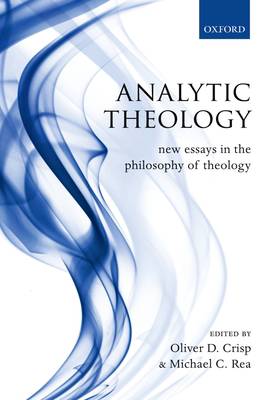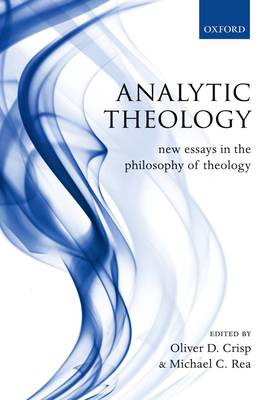
Door een staking bij bpost kan je online bestelling op dit moment iets langer onderweg zijn dan voorzien. Dringend iets nodig? Onze winkels ontvangen jou met open armen!
- Afhalen na 1 uur in een winkel met voorraad
- Gratis thuislevering in België vanaf € 30
- Ruim aanbod met 7 miljoen producten
Door een staking bij bpost kan je online bestelling op dit moment iets langer onderweg zijn dan voorzien. Dringend iets nodig? Onze winkels ontvangen jou met open armen!
- Afhalen na 1 uur in een winkel met voorraad
- Gratis thuislevering in België vanaf € 30
- Ruim aanbod met 7 miljoen producten
Zoeken
Analytic Theology
New Essays in the Philosophy of Theology
Oliver D Crisp, Michael C Rea
Paperback | Engels
€ 52,95
+ 105 punten
Omschrijving
Philosophy in the English-speaking world is dominated by analytic approaches to its problems and projects; but theology has been dominated by alternative approaches. Many would say that the current state in theology is not mere historical accident, but is, rather, how things ought to be. On the other hand, many others would say precisely the opposite: that theology as a discipline has been beguiled and taken captive by 'continental' approaches, and that the effects on the discipline have been largely deleterious. The methodological divide between systematic theologians and analytic philosophers of religion is ripe for exploration. The present volume represents an attempt to begin a much-needed interdisciplinary conversation about the value of analytic philosophical approaches to theological topics. Most of the essays herein are sympathetic toward the enterprise the editors are calling analytic theology; but, with an eye toward balance, the volume also includes essays and an
introduction that try to offer more critical perspectives on analytic theology.
introduction that try to offer more critical perspectives on analytic theology.
Specificaties
Betrokkenen
- Auteur(s):
- Uitgeverij:
Inhoud
- Aantal bladzijden:
- 328
- Taal:
- Engels
Eigenschappen
- Productcode (EAN):
- 9780199600427
- Verschijningsdatum:
- 11/05/2011
- Uitvoering:
- Paperback
- Formaat:
- Trade paperback (VS)
- Afmetingen:
- 231 mm x 155 mm
- Gewicht:
- 498 g

Alleen bij Standaard Boekhandel
+ 105 punten op je klantenkaart van Standaard Boekhandel
Beoordelingen
We publiceren alleen reviews die voldoen aan de voorwaarden voor reviews. Bekijk onze voorwaarden voor reviews.











